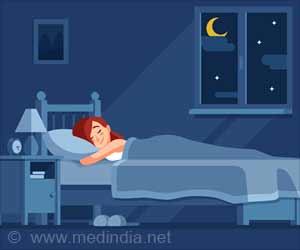Late sleepers and late risers may both have a higher risk of developing diabetes.

Lack of Sleep and Diabetes
Go to source).
Night Owls at Higher Diabetes Risk than Early Birds
The study analyzed the data of 63,676 female nurses. The result shows that around 11 percent had evening chronotypes, 35 percent morning, and 54 percent intermediate. Those with evening chronotype had a 72 percent higher diabetes risk, reducing to 19 percent when factoring lifestyle. Healthiest lifestyles had only 6 percent evening chronotypes, while unhealthiest had 25 percent.‘A better understanding between chronotype and diabetes or other diseases, could better tailor prevention strategies for patients. #diabetes #sleep #chronotype’





"When we controlled our unhealthy lifestyle behaviors, the strong association between chronotype and diabetes risk was reduced but still remained, which means that lifestyle factors explain a notable proportion of this association," said first author Sina Kianersi, a postdoctoral research student in the Brigham's Channing Division of Network Medicine.They also found the association between evening chronotype and diabetes risk only in those nurses who worked day shifts and not those who worked overnight shifts."When chronotype was not matched with work hours we saw an increase in type 2 diabetes risk," said Tianyi Huang, associate epidemiologist at Brigham.
Meanwhile, researchers also found that people with evening chronotypes were found to be more likely to drink alcohol in higher quantities, have a low-quality food diet, get less hours of sleep per night, currently smoke, and have weight, BMI, and physical activity rates in the unhealthy range.
The researchers next plan to investigate genetic determinants of chronotype and its association with cardiovascular disease, in addition to diabetes.
Reference:
- Lack of Sleep and Diabetes - (https://www.sleepfoundation.org/physical-health/lack-of-sleep-and-diabetes)















